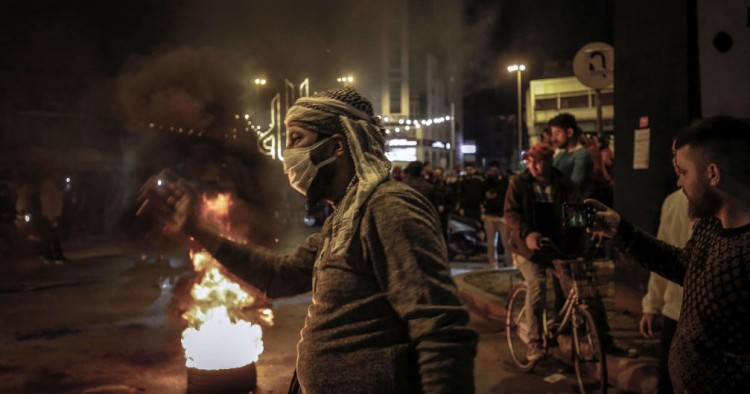The freefall of Lebanon’s currency continues with the pound soaring above 3,000 to the dollar for the first time, while the official peg stands at 1507.5. Lebanon’s central bank has intervened and admitted to pumping U.S. dollars into the parallel market — where currency exchange dealers were trading at 3,100 on Monday — to drive down the unofficial rate.
Last week Prime Minister Hassan Diab said Lebanon’s Ministry of Finance “initiated contact” with the IMF to discuss a draft economic rescue plan. This comes a month after Lebanon defaulted on a Eurobond payment for the first time ever, capping an unprecedented economic crisis. According to a senior official at the Ministry of Finance, the IMF said nothing more than: “Congratulations for a comprehensive and courageous plan.”
A draft of the so-called economic rescue plan has been leaked in recent days with Diab’s government hoping to increase growth to 2 percent during the five-year plan and restructure $90 billion of “debt stock.” According to an IMF report released last week, the economy is projected to shrink by 12 percent this year. Despite Hezbollah’s initial opposition to IMF intervention, the Iranian proxy has softened its stance to say that it doesn’t mind consulting with the IMF.
The rescue plan requires between $10 and $15 billion, and surely this will necessitate both IMF aid as well as assistance from foreign countries. Lebanon has sought out “technical advice” from the IMF but has yet to ask for a direct intervention or financial assistance. Without a solution to the Lebanese-Israeli border dispute, Hezbollah’s arms, and a new deal between Washington and Iran, it will be difficult for Beirut to get much-needed funding.
The COVID-19 pandemic has only added to the strains on an already-flailing economy, and Human Rights Watch has warned that it could lead to more than half the population not being able to afford food and basic necessities. The World Bank reallocated $40 million from a previous project in the country to help in the fight against coronavirus, with Washington, France, Qatar, and China also providing aid in the form of protective personal equipment and COVID-19 testing.
As the central bank attempts to lower the dollar rate to 2,600, Lebanese citizens are growing increasingly frustrated with a lack of concrete results from Diab’s self-styled “government of independent experts.” Small protests are reemerging in pockets of the country and momentum is building for a continuation of the nationwide anti-government protests that broke out last October.
Joseph Haboush is a non-resident scholar at the Middle East Institute and a journalist. He was previously the Lebanon & Online Desk Editor at The Daily Star.
Photo by IBRAHIM CHALHOUB/AFP via Getty Images
The Middle East Institute (MEI) is an independent, non-partisan, non-for-profit, educational organization. It does not engage in advocacy and its scholars’ opinions are their own. MEI welcomes financial donations, but retains sole editorial control over its work and its publications reflect only the authors’ views. For a listing of MEI donors, please click here.













